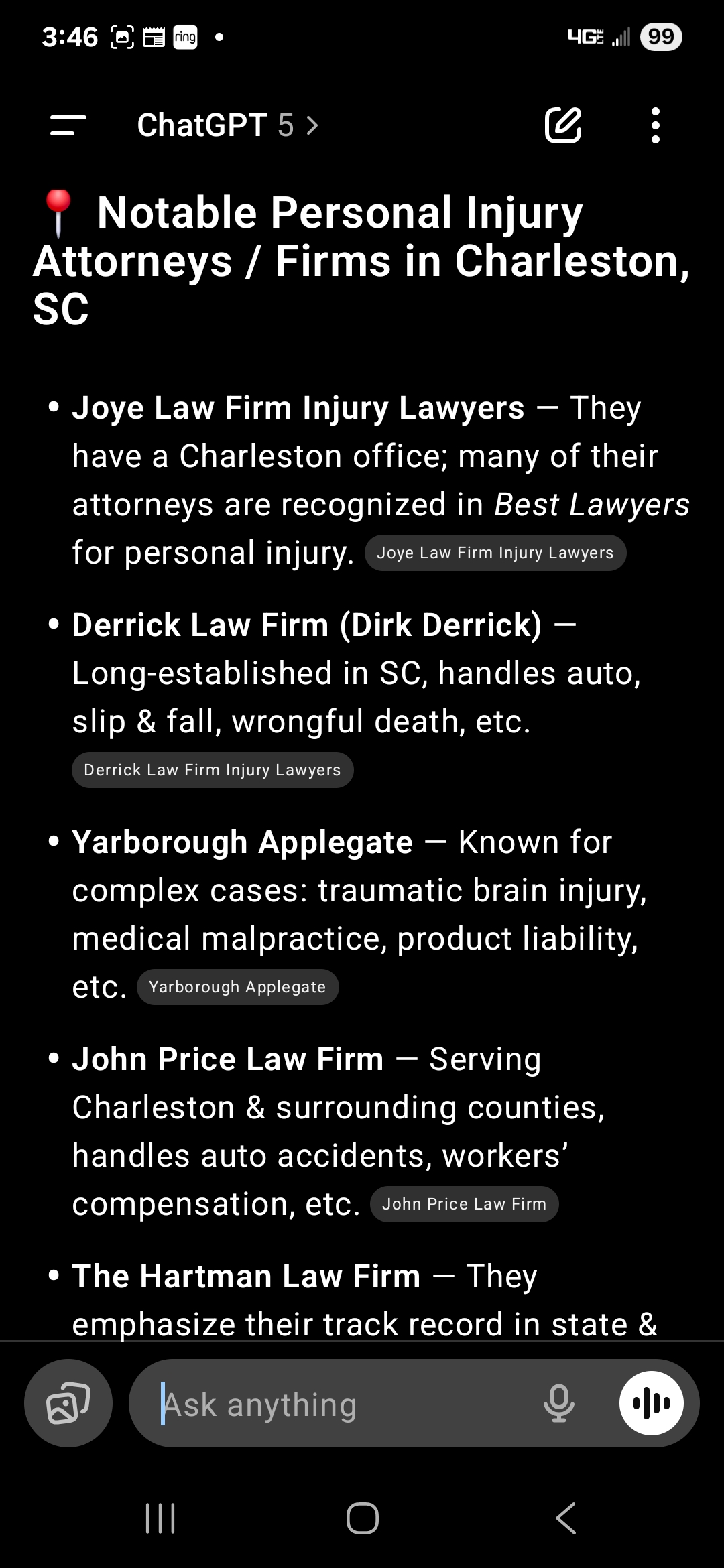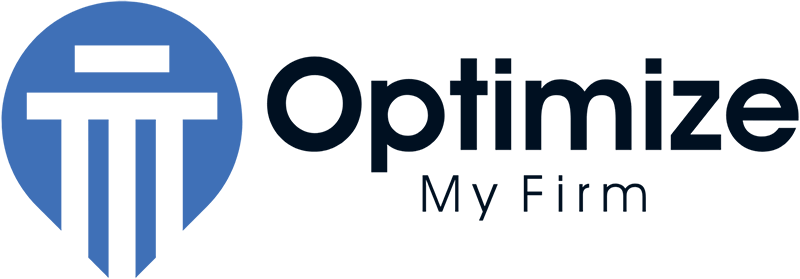 If you’ve logged into Facebook or Instagram lately, you’ve seen a plethora of advertisements pushing Generative Engine Optimization (GEO).
If you’ve logged into Facebook or Instagram lately, you’ve seen a plethora of advertisements pushing Generative Engine Optimization (GEO).
Headlines read everything from “how to optimize for GEO” to “SEO is dead, you need GEO”.
So, what is it?
What is Generative Engine Optimization (GEO)?
“Chatbots”, sometimes called “AI Assistants”, augment search engines.
Technically, there is no “generative engine”, but most attorneys reading this simply want their web content to be more visible and cited within AI-generated responses.
As of 2025, some popular AI Assistants are ChatGPT, Copilot, Perplexity, Grok, Brave and Google’s AI Mode.
AI Assistants all work differently, but as of 2025, most scrape the web to build their own index. ChatGPT, Copilot, and Perplexity all use Bing’s index as well, especially for real time information, and, of course, Google’s AI Mode uses Google’s index. Note that the “index” has nothing to do with “rankings”.
Are AI Assistants Driving Web Traffic?
Yes, but not as much as you’d think. Our own internal studies show <2% of traffic to personal injury law firm websites comes from AI Assistants. You don’t have to take our word for it, a 2025 ahref’s study examined 35,000 websites and found the same thing.
But, yes, our clients, and Optimize My Firm itself, have both obtained clients from AI Assistants, so they shouldn’t be ignored. And, Google’s AI Mode is most definitely going to be seen more and more moving forward.
Below we’ll focus on what is valuable to AI tools, and what you can do to gain visibility in unbranded search.
How To Optimize for AI Assistants like ChatGPT and Google AI Mode:
Attorneys usually have 3 potential concerns:
- They want to show up in people’s research when they’re looking for answers to their legal situations
- They want to show up for “Best Personal Injury Attorney in city name”
- They want to show up for both.
Showing up in people’s research:
The most important thing you can do to obtain traffic from AI Assistants is to have unique content.
If you have a page about “Charleston SC Bicycle Accident Attorney”, you could add content to this page about local ordinances, and include pictures of the bicycle lanes, bicycle sharrows, protected bike lanes, and explain how these unique things could affect a prospective client’s case. You could include information about past bicycle cases, and verdicts & settlements.
If you really want to optimize for AI Assistants, you’ll also produce video content about the topic and post it on Instagram, YouTube and TikTok.
For the attorney already producing great content, there’s absolutely nothing new to do here.
Showing up for “Best Personal Injury Attorney in city name”:
This one is simple (simple, not easy) to manipulate. Please keep in mind very few people are searching for this. Also, it’s important to note that all AI assistants produce answers on the fly and work a little differently.
Let’s use ChatGPT as an example to search for the best injury lawyer in Charleston SC:

To generate this list, ChatGPT:
- Used legal directories, specifically, Super Lawyers (SuperLawyers.com), Best Lawyers in America (BestLawyers.com), AVVO, “top law firm” roundups, and Google Maps results.
- It then cross-checked for repeated mentions in other directories.
- It also checked reviews on BBB, EliteLitigators, and Yelp.
- It also looked at the recent settlements and verdicts on the firm’s websites.
- It looks at Facebook recommendations.
- It looks at peer ratings on Martindale-Hubbell.
- It looks at legal awards from National Trial Lawyers and Million Dollar Advocates.
- It looked at Justia for years of experience, ratings and reviews as well.
- It looked at AVVO ratings.
As a recap, according to ChatGPT, ChatGPT looked at:
- Visibility and consistency
- Practice focus
- Recognition and awards
- Case results
- Reputation signals
- Local presence
Google’s “AI Mode” is simpler. It uses Google’s search engine and index. Sometimes AI Mode also looks at some of these same things, and sometimes it shows a carousel of local attorneys, similar to the existing Local Pack.
Actionable Advice:
The vast majority of your efforts to gain visibility in AI tools lies in traditional SEO (when it’s done correctly). A high ranking site with great content on it is 85% of the battle, because AI Assistants literally use search.
Don’t walk, RUN from anyone selling “GEO”. This is a misleading scare tactic. There’s no such thing as a “Generative Engine”, and visibility in AI tools is not something you can simply purchase.
For the firm who wants to be everywhere, the answer is:
- SEO
- Great content
- Video content
- Then, get listed on Super Lawyers, Best Lawyers, purchase awards, get a BBB rating, get media coverage of settlements, get peer reviews in Justia, build a reputation on Facebook, get Yelp reviews, build out your AVVO rating, obtain peer reviews on Martindale-Hubbell, try to win a “Best of _city-name_” award, etc. If that’s too much effort, or sounds ridiculous, or costs too much, it is probably time to at least begin th journey of building out reviews on Facebook, Yelp, Martindale, AVVO and a few others.
A Final Note on “Great Content”:
We’ve been producing it so long, it’s easy for me to forget that most people don’t know what “great content” is. This is what moves the needle for attorneys in BOTH search engines & AI Assistants:
- Hierarchy: Content should be laid out in a way which makes sense to humans. If a person can easily navigate your site, so can the machines. For example, if you have a car accident page, a “child page” could be about Uber accidents. So, your site structure would look like: Personal Injury\Car Accidents\Uber. Clear structure is important.
- Use natural language: Just have people write for people. The best thing you can do for SEO or GEO or AI or PEOPLE is to simply write.
- FAQs: On all major pages we always include FAQs. FAQs directly answer common questions. For example, if you’re a Charleston injury lawyer with a bus accident page, your FAQ section could include FAQs such as “Is there a special process to file a lawsuit against CARTA?” and “How do you file a claim against DASH?”
- Answer questions directly: On pages we create, or blogs we post, we answer questions in easy to understand answers. For example, if you have a page about South Carolina Dog Bites, that page can start right off saying “South Carolina is a strict liability dog bite state. That means if a dog bites you in South Carolina, the owner may be held financially responsible for injuries caused by their dog, even if the dog has never shown aggression before.” Here we often set up “subpages” or “child pages” in a Q&A format. This type of content may go in this hierarchy or onto a blog, either way is fine.
Expert written, conversational content does great with AI assistants.
Need Help Getting Visibility in Search and/or AI?
Beware the scams and quick fixes. Building a strong Internet presence really hasn’t changed much in the last 20yrs, which is why Google themselves say good SEO is the only thing you need. Of course, not everyone has a strong SEO & content strategy in place. If you need that, contact us today.
